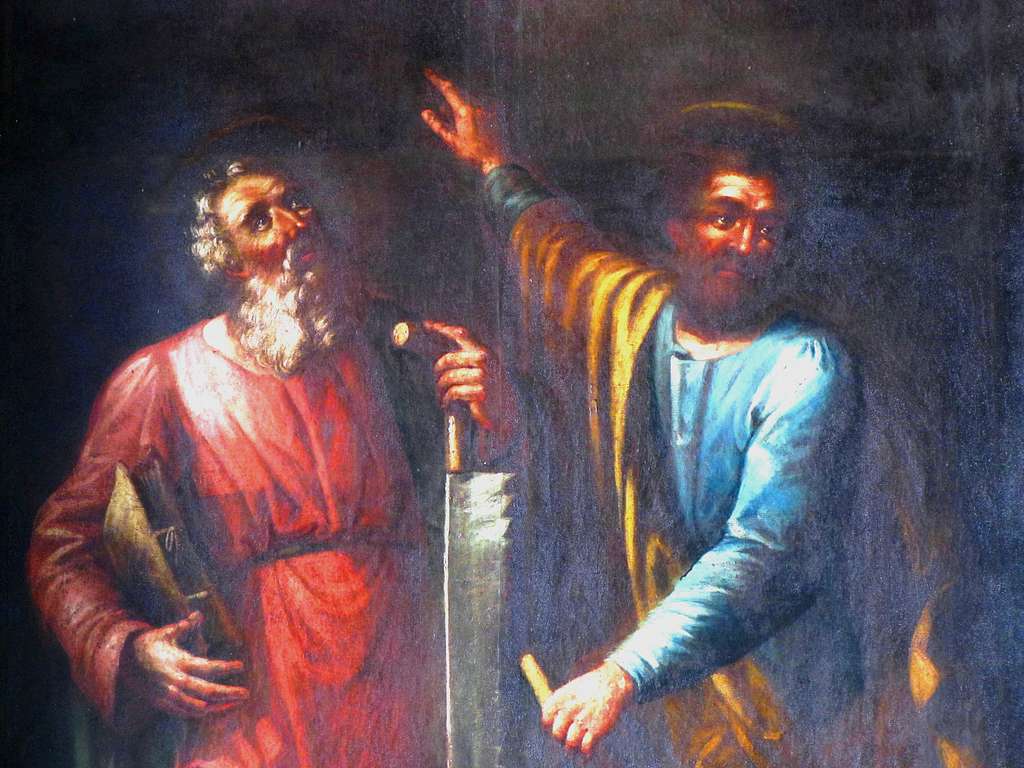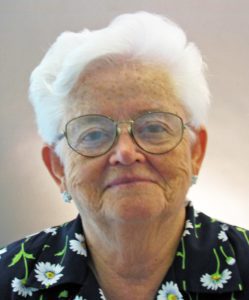
According to Luke’s Gospel, Jesus reached the moment in his ministry when he was ready to choose from among his many disciples, the chosen Twelve. Notice that he spent his whole night in prayer before he made these final decisions. Saint Paul tells us today that we have all been called to be the heirs to this same discipleship of Jesus Christ, just as the original Apostles were named and chosen by Jesus.
Today, we honor two of those Apostles, Saints Simon and Jude. Little is known about them except what has been handed down through tradition. Simon is introduced to us as a zealot, one who was an extreme nationalist and who would do anything to destroy the Roman grip on the Jewish nation, including murder of anyone in league with Rome—even his fellow Jews. Jesus, on the other hand, lived in the hope of the Reign of God and saw that which was best and possible in others. Can you imagine Simon’s surprise when the tax collector, Matthew, was chosen as one of the newly formed intimate circle? Nothing was impossible with Jesus.
Jude was originally one of two disciples called Judas. He was a cousin of Jesus and his name was likely changed to Jude to distinguish him from Judas Iscariot who betrayed Jesus. Saint Jude is credited with the Letter of Jude to the early Christian Church, reminding them to beware of immorality and heresy. Unfortunately, they were only thinking of their status in their immediate context and missed the big picture. Tradition also claims that both Simon and Jude proclaimed the Gospel in the Middle East and Persia where they were both martyred.
No doubt Jesus encountered many difficult incidents among his apostolic novices who were being called to a totally different way of living. How different are we from our forerunners, who after two thousand years of trying to practice Jesus' hope in and acceptance of all types of people with opposing opinions, beliefs, and traditions?
Today, we face significant challenges when confronted with deep-seated prejudices, hatred, and worldwide divisions. The art of listening to one another and a sense of understanding appear to be lost, along with a growing lack of trust and hope. As Dominican Father Timothy Radcliff shared recently at the synod in Rome, we can never give up on keeping the conversation going, even when there are seemingly vast chasms between us. This is easy to preach but difficult to do. According to Radcliff, the Gospels are a series of conversations of Jesus with all sorts of people—including prostitutes, religious leaders, the self-righteous, and even pagan army leaders. No one was beyond his invitation.
So, let us not fall into the trap of exclusion. It is easy to throw our hands up in frustration and give up on our brothers and sisters. Jesus must have endured a similar anguish in the Garden of Gethsemane when he felt keenly aware of the cup he was about to drink—even after three years of preaching, teaching and healing. However, we know he never gave up on his Father's love for him, nor should we ever lose hope.
In the early days of Christianity, it was a tradition to pray to the Apostles after their deaths to seek intercession from them in various petitions. After a particular time, if people did not receive help from one of the Apostles, it was said that they then turned to Saint Jude, who became the saint of impossible situations. Today and in the coming days, let us invoke the intercession of Saints Simon and Jude for the grace to believe that hope springs eternal and nothing is impossible with God.
– Sister Helen R. Boyd, OP
Sister Helen resides in Dominican Convent, where she serves
on the Life Enrichment Committee and co-chairs the
Mission Outreach Committee.
